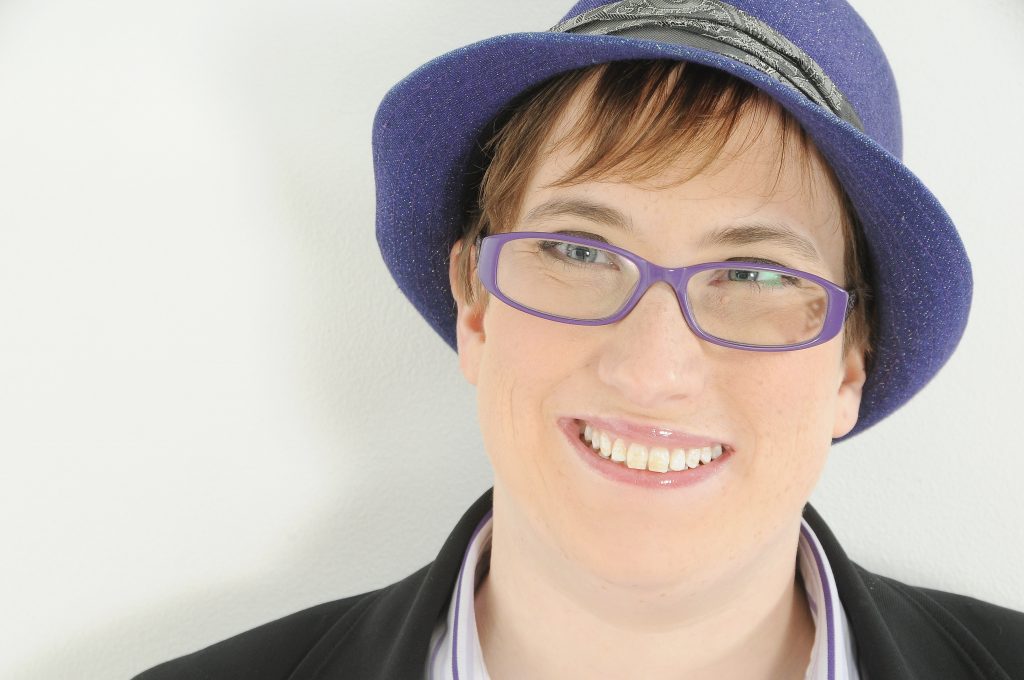
Robyn Steward is an international public speaker, autism advocate, musician, and author from the UK. On top of her training and consultancy work, Robyn has been an advocate for inclusivity and raising awareness around sexual abuse. In 2018, Robyn was named as 1 of the 100 Most Influential Disabled People in the UK. Robyn has written two books The Independent Woman’s Handbook For Super Safe Living on the Autistic Spectrum and The Autism Friendly Guide to Periods. This week she discussed some of her advocacy work with Robyn’s Rocket, an inclusive music event as well as the work involved in the creation of her new book on menstruation.
You have devoted many years to autism advocacy. When/how did you first develop an understanding of autism and what that meant to you?
When I was 17, I was bullied in school, and the tutors told me I brought it on myself. This angered me; I was confused. At this time I was part of a group of Autistics, and we were asked what we’d like to change in the school. We said staff training on autism and having a safe place to go to. Ian (who makes Zey the Mouse, a stop motion series) described going into college, another student, Kerry, talked about the impact of special education on autistic students, and so the obvious missing element was explaining exactly what autism is. So I researched it and learned about Theory of Mind and understood that if I helped Non-Autistic people understand Autistic people, then they could help Autistic people understand Non-Autistic people, and if I understood non-Autistic people, then I could behave in a way that would make the bullying stop.
What inspired you to create Robyn’s Rocket? What need does it serve in your community? What advice would you have for others wanting to start something similar in their communities?
I started Robyn’s Rocket to share all the creative work I was doing, but also as a safe place for the community of artists from Heart N Soul to be able to play and come and have fun. Then I got funding to widen my inclusion efforts I have made, and I will continue to make resources available at www.robynsrocket.com so people can use these as starting points. My biggest advice is to listen to the feedback of your artists and audiences.
I’m excited about your recent book on periods for individuals on the spectrum. How is this book unique and necessary for the young autistic community?
I didn’t want to write a book about menstruation in the same ways other people had, as I didn’t think they were very autism friendly, so I wanted to try and address the issues that I saw within the current books on the topic. For example, there were no step-by-step photos (with the person in the book photographed in such a way the reader could follow without needing to flip their image in their head), to provide information on menstrual cups, cloth pads, and period underwear, something very much lacking in the current books out there, but vital to the autism community.
Is the advice in this book suitable for autistic individuals of all different ranges, levels, and combinations of skills that make up the autism spectrum? Explain.
Yes there is plenty of text should you want detail, but there are also photos (lots of photos!) and a flap system to allow you to control how much of an image if at all you see.
What role did the autistic community play in the research and development of this book?
The way the book was written was shaped by autistic people. I conducted a survey comparing autistic and non autistic peoples’ experiences of menstruation which informed the direction of the book. People shared a vast amount of information which I then went and researched further. I also visited a service run by the Kent Autistic Trust who have done some research into the experiences of people with profound needs who are unable to explain their experiences. Additionally, I spoke to the students of Limpsfield Grange School, a residential and day school for girls aged 11 -16 with communication and interaction difficulties, many of whom are Autistic.
What mistakes do you see neurotypical autism advocates make?
Mainly that they don’t ask enough autistic people. As an autistic person, it’s vital that I ask others about their experiences because the spectrum is so wide. We are lucky to have some wonderful neurotypical allies like Liz Pellicano and Steve Silberman.
What are some of the most common topics you are asked to speak about? What do you enjoy most about public speaking and/or advocacy?
I get asked to talk about my life experiences a lot. I’m really passionate about sharing what I have learned through my surveys to other autistic people. I am also part of the Heart N Soul at the hub core team and a Wellcome trust funded 2-year residency at the Wellcome in London. Here we are focused on giving other autistic peoples and people with intellectual/learning disabilities the opportunity to ask questions to the wider world. We’ll be producing new surveys soon.
